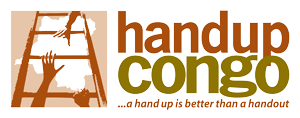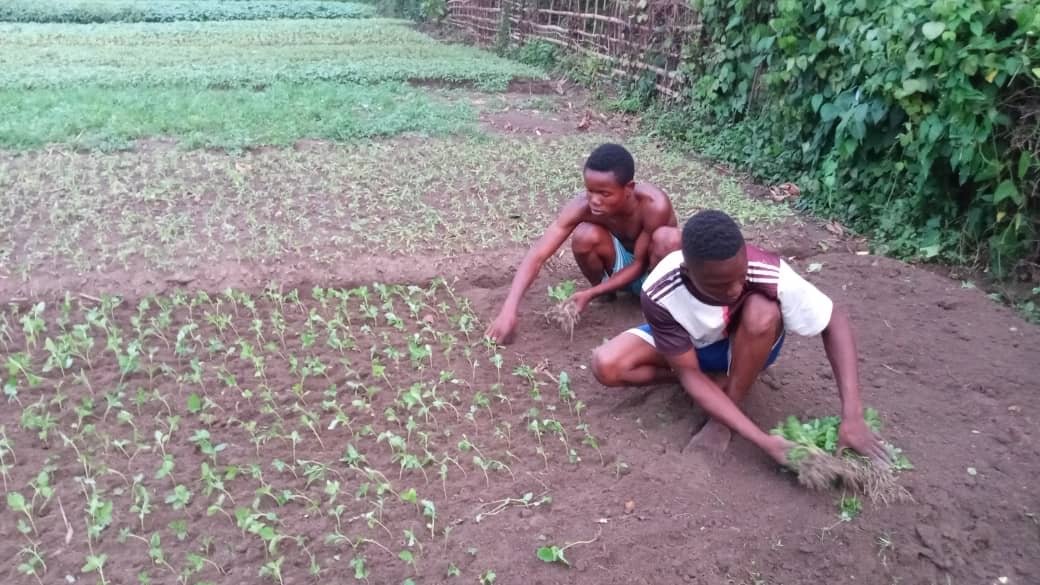Community Development
Photos by Ken Kobré, Maureen Burdynski, Lucy Hobgood-Brown
Food security
By facilitating agricultural training, sustainability practices, funding tools and fast-growing seedlings, we aim to improve health and wellbeing. Villagers now have community gardens, poultry-raising enclosures, beehives, more fruit trees and a community store where villagers sell their produce.
Lotumbe, which is in the world’s 2nd largest rainforest, is tackling climate change through sustainable farming practices to preserve Congo’s unique ecosystems. The community of 6,000 has identified food security as its top priority.
Seed money creates opportunities for women
To improve the lives of children, families and communities.
Because it comes from each member of a Microcredit Mama savings group, the seed money is often a relatively modest sum. This money generally covers only the essentials a startup needs such as a bag of flour, used to make bread that is sold in the community. Some of the profits from the bread sales go back into the group’s savings, to be loaned out to others.
Ken Kobré
MicroCredit Mamas
There are more than 60 Microcredit Mamas who are earning enough money to pay for school fees, medical care and solar panels.
Lotumbe women have been educated in a savings-based microfinance project model which includes an expanding number of borrowers as loans are made and repaid with interest thereby growing the fund.
This Microcredit model works - and is being replicated.
What a difference a canoe motor makes
In 2017, HandUp Congo supporters purchased a motor for the Lotumbe Microcredit Mamas enabling them to access multiple riverside markets to sell handmade soap, bread, manioc and more - saving them many hours of travel each day.
The Microcredit Mamas also rent out the motor for income. More canoe motors, bicycles and motorcycles would make an enormous difference to many!
Photo by Ken Kobré
Sewing Machines
After providing sewing machines in 2005, a sewing school was born creating:
school uniforms
clothes for newborns
properly outfitted medical personnel
washable hygiene kits that help keep girls in school
Poultry power
More Pygmy orphans are enrolled in school via the poultry power and fruit tree raising initiative. The goal is to sell eggs and fruit to cover the cost of the Pygmy orphans’ tuition and uniforms.
Tree planting starts with a ceremony
Reforestation
Since 2017, Lotumbe school children and community members have planted more than 1,000 bee-friendly fruit and palm trees as a climate change and food security reforestation project.
Deforestation is occurring due to illegal logging and the large numbers of displaced people cutting down trees for shelter and fuel.
Photo by Ken Kobré
Community Gardens
In 2006, the first community garden was established to provide vulnerable women with food security. HandUp Congo provides funds for tools, seeds and training. The land is donated by the community.
Food security is now a bit easier for Lotumbe’s at-risk widows and vulnerable single mums.
PLANT NURSERY
To combat plastic waste in the community, Lotumbe raises seedlings in repurposed plastic bags and bottles before planting them in the garden.
A win/win.
Library
A small library has been established as a resource for the teachers of Lotumbe's seven schools.
With your help, HandUp Congo aims to provide funding for more books for teachers and more than 1,000 children. The Ministry of Education determines school curriculum and reading lists.
Homemade ball. Photo by Lucy Hobgood-Brown
Sports
Soccer balls and jerseys make a difference too!
Sport is uniquely effective in improving health, fostering social inclusion, interaction and cohesion - and gender equality.
Lotumbe sport teams provide safe and supportive community spaces for women and Pygmies who are at an increased risk of experiencing violence.
Photo by Lucy Hobgood-Brown
investing in Schools
At the request of the community, HandUp Congo has rebuilt schools, funded school benches, rehabilitated tornado-damaged school buildings and provided:
pre-school toys
cloth for school uniforms
funds to buy schoolbooks and stipends for pre-school teachers
Pygmy orphan tuition
Photo by Safari Kanyena
beekeeping
HandUp Congo's Emergency Medicine Education Project leader, Dr Vera Sistenich, is also a hobby apiarist. She identified the opportunity to introduce sustainable beekeeping in Lotumbe.
The locals were burning down trees to access honey. With HandUp Congo's help they have had training from Congo's Beekeeping Association (PLAAC) and now have the equipment and skills to sustainably retrieve honey from trees and build their own hives.
Vera has enthusiastically championed this new social enterprise in Lotumbe.
Photo by Ken Kobré
community store
Lotumbe has the only store for 100's of kilometres. It sells everything from batteries to combs, cooking oil to cloth, tinned food to school notebooks.
With help from supporters, HandUp Congo built the store and has provided seed money for merchandise. Local entrepreneurs also sell their wares.
solar panels
We have seen the impact of solar panels on healthcare workers, entrepreneurs, school children and community leaders in Lotumbe.
We aim to build on this with our project colleagues.
Support our community development projects
To make a tax-deductible donation through Rotary Australia World Community Service, click the button below and designate COMMUNITY DEVELOPMENT in the Request field.
















